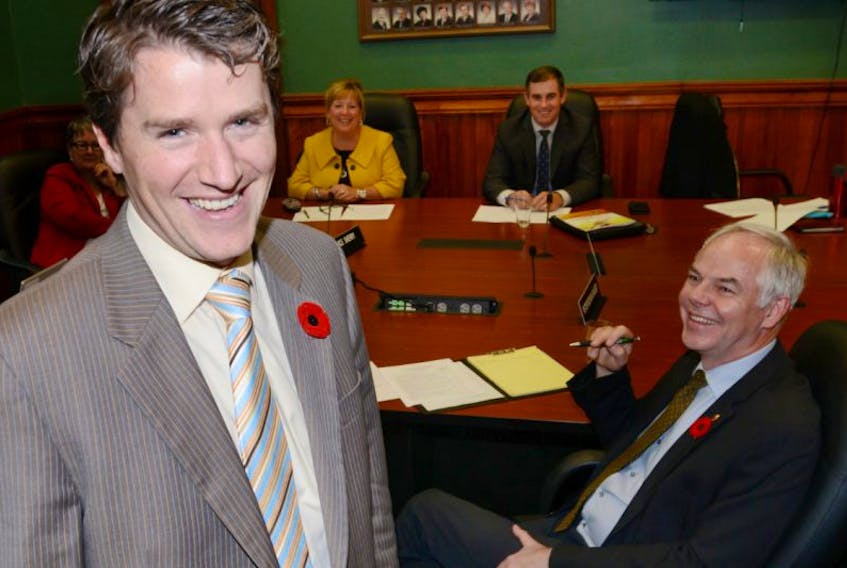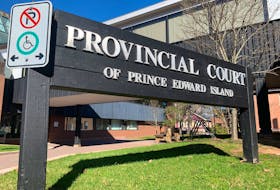A proposed date for a plebiscite on changing the way Prince Edward Islanders vote has been pushed back to the fall of 2016 amid concerns the process was being rushed.
A white paper on democratic renewal released by Premier Wade MacLauchlan in July suggested a plebiscite question be crafted and released by Nov. 30 in the report of the Special Committee on Democratic Renewal – a committee made up of Liberal, Progressive Conservative and Green party MLAs.
Government also indicated in July it expected the plebiscite itself would be held as early as spring 2016.
But that timeline has been scrapped.
The committee instead has recommended more time is needed in its report, tabled today in the legislature.
Further discussion, comparison and evaluation of electoral systems is necessary to refine the plebiscite question, the committee report states.
Instead, four specific options for electoral reform were chosen and will be presented to the public for further consultation.
These will be further narrowed down to one or two options in a plebiscite question by May 2016.
After that, a six-month education campaign will be held to fully engage and inform the public about the options being proposed.
The plebiscite itself has been proposed for November 2016, as recommended by the committee.
Committee chair Jordan Brown told The Guardian last week he expected a draft plebiscite question would be included in the report tabled today.
But he said the committee noted concerns voiced by many of those who made submissions they felt the process was too rushed and that not enough information was given to Islanders about potential new voting options.
“We heard pretty consistently though our consultations over the last few months that there are really a few different voting systems besides the system that we have now that might be appropriate for P.E.I.,” Brown said.
“We want to go back out and hear from Islanders as to what the specifics of those systems are… and make sure that when it comes down to making a decision we have the clearest outline of the possibilities that we can have so that Islanders have a clear sense of what it is we’re asking them to decide.”
The four options that will be presented to Islanders for further discussion are:
- Keeping the current first-past-the-post voting system with the addition of seats for party leaders whose parties attain a certain percentage of the popular vote in an election
- Keeping the current first-past-the-post voting system, but using a preferential ballot
- Going to a mixed-member proportional representation voting system
- Changing to dual member mixed proportional representation voting
- Keeping things status quo will also be considered.
Consultations phase to consider these four options and narrow down the plebiscite question will take place in the new year.
On Friday, MLAs in the legislative assembly voted unanimously to adopt the committee’s report, with a number of MLAs expressing support for the decision to slow the process down and allow more time for public engagement and education on electoral reform.
“One of the underlying themes from the public presentations that kept coming up was – let’s do this right, let’s take our time, let’s not be rushed by suggested timelines in the white paper,” said committee member and Opposition MLA Sidney MacEwen.
“As a committee we took that seriously and we wanted to set our own timeline. We don’t want it to take forever, but we want to set in stone what we thought would be a reasonable timeline so that Islanders can get up to speed and can be educated on the options so they can make a good decision.”
Green Leader Peter Bevan-Baker, who also sits on the committee, agreed.
“I think we have to get this right, and unless Islanders truly, deeply understand what the options are that are available to them, then the process is just a sham,” Bevan-Baker said.
“Having enough time to have a proper educational aspect to this always has been a critical part of this.”
A proposed date for a plebiscite on changing the way Prince Edward Islanders vote has been pushed back to the fall of 2016 amid concerns the process was being rushed.
A white paper on democratic renewal released by Premier Wade MacLauchlan in July suggested a plebiscite question be crafted and released by Nov. 30 in the report of the Special Committee on Democratic Renewal – a committee made up of Liberal, Progressive Conservative and Green party MLAs.
Government also indicated in July it expected the plebiscite itself would be held as early as spring 2016.
But that timeline has been scrapped.
The committee instead has recommended more time is needed in its report, tabled today in the legislature.
Further discussion, comparison and evaluation of electoral systems is necessary to refine the plebiscite question, the committee report states.
Instead, four specific options for electoral reform were chosen and will be presented to the public for further consultation.
These will be further narrowed down to one or two options in a plebiscite question by May 2016.
After that, a six-month education campaign will be held to fully engage and inform the public about the options being proposed.
The plebiscite itself has been proposed for November 2016, as recommended by the committee.
Committee chair Jordan Brown told The Guardian last week he expected a draft plebiscite question would be included in the report tabled today.
But he said the committee noted concerns voiced by many of those who made submissions they felt the process was too rushed and that not enough information was given to Islanders about potential new voting options.
“We heard pretty consistently though our consultations over the last few months that there are really a few different voting systems besides the system that we have now that might be appropriate for P.E.I.,” Brown said.
“We want to go back out and hear from Islanders as to what the specifics of those systems are… and make sure that when it comes down to making a decision we have the clearest outline of the possibilities that we can have so that Islanders have a clear sense of what it is we’re asking them to decide.”
The four options that will be presented to Islanders for further discussion are:
- Keeping the current first-past-the-post voting system with the addition of seats for party leaders whose parties attain a certain percentage of the popular vote in an election
- Keeping the current first-past-the-post voting system, but using a preferential ballot
- Going to a mixed-member proportional representation voting system
- Changing to dual member mixed proportional representation voting
- Keeping things status quo will also be considered.
Consultations phase to consider these four options and narrow down the plebiscite question will take place in the new year.
On Friday, MLAs in the legislative assembly voted unanimously to adopt the committee’s report, with a number of MLAs expressing support for the decision to slow the process down and allow more time for public engagement and education on electoral reform.
“One of the underlying themes from the public presentations that kept coming up was – let’s do this right, let’s take our time, let’s not be rushed by suggested timelines in the white paper,” said committee member and Opposition MLA Sidney MacEwen.
“As a committee we took that seriously and we wanted to set our own timeline. We don’t want it to take forever, but we want to set in stone what we thought would be a reasonable timeline so that Islanders can get up to speed and can be educated on the options so they can make a good decision.”
Green Leader Peter Bevan-Baker, who also sits on the committee, agreed.
“I think we have to get this right, and unless Islanders truly, deeply understand what the options are that are available to them, then the process is just a sham,” Bevan-Baker said.
“Having enough time to have a proper educational aspect to this always has been a critical part of this.”









